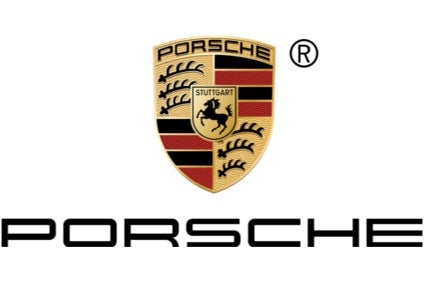
It has been reported that German automaker Porsche is considering setting up an assembly plant in Kedah, Malaysia, in partnership with Malaysian conglomerate Sime Darby Bhd's subsidiary Inokom Corporation. Sime Darby is already a distributor for Porsche in the region. Porsche reportedly aims to make Malaysia an Asian production hub.
The development would be a very big boost for Malaysia as the assembly plant, when developed, would be the only Porsche production facility outside Europe. To date, Porsche plants are in Germany with one also in Slovakia.

Discover B2B Marketing That Performs
Combine business intelligence and editorial excellence to reach engaged professionals across 36 leading media platforms.
Porsche global vehicle deliveries have been on a steady rise since 2015. Like everyone in the industry, the automaker was hit by the pandemic, but a look at deliveries shows a degree of resilience. APAC & MEA remained major contributors to 2020 sales and are relatively high-volume and high-growth regions for Porsche.
In contrast with sales declines of 9% and 8% in Europe and America respectively, Porsche sales grew 4% in the APAC & MEA regions combined in 2020. Manufacturing capacity in the region would offer a solution to cater for growing Porsche demand in the region.
Local assembly in APAC/SEA region would help Porsche to reduce import duties and logistics costs. Porsche sells over 110K units annually in APAC and that could be an indication of the production capacity the company may target.
Porsche would be the fifth luxury brand to be produced in Malaysia after BMW, Mercedes-Benz, Land Rover and Volvo.
Porsche would be the fifth luxury brand to be produced in Malaysia after BMW, Mercedes-Benz, Land Rover and Volvo. Porsche's partner Inokom Corporation showcases wide expertise in luxury vehicle assembling which includes BMW, MINI and Land Rover brands. The company is also assembler for Hyundai, Mazda, Ford, Brilliance, and Foton, and has production capacity of 38,000 vehicles presently.
Malaysia is also the third largest automotive production market in the southeast Asia region after Thailand and Indonesia. Malaysia also has well established export ties with neighbouring countries such as China, Japan, South Korea, Taiwan, and Australia, which are key markets for Porsche in Asia in terms of volume.
The move could be a very positive development for Malaysia as it would improve Malaysia's competitive position in southeast Asia (SEA). The development would likely help Malaysia in attracting more OEMs to set up assembling and manufacturing facilities in the country. With a value chain comprising more than 700 businesses directly supporting the 27 OEMs already operating in Malaysia, further investments by more vehicle makers would certainly create a win-win situation to boost both investor and local industry potential.
Dato Madani Sahari, Chief Executive Officer of Malaysia Automotive, Robotics and IoT Institute (MARii), sees this development as "a result of consistent efforts by the Malaysian government towards introduction of attractive tax and competitive investment incentives and development of a highly skilled workforce."
MARii, an agency under the Ministry of International Trade and Industry (MITI), has implemented numerous programmes to train skilled and semi-skilled workforce for the growing mobility sector. The agency is a strategic think-tank for the Malaysian government for matters related to automotive industry, including formulation of policies.
Dato Madani Sahari notes the proactive role of Malaysia's government in pushing the country's advanced technology capabilities to attract international investment. "Despite the economic impacts of COVID-19, Malaysia's Senior Minister and Minister of International Trade & Industry called for the acceleration of digital empowerment within businesses," he says. "Technology has been a main driver of Malaysia's through government commitments to national level frameworks and roadmaps, including the National Policy on Industry 4.0 (Industry4WRD), National eCommerce Roadmap, as well as national big data management, artificial intelligence and IoT frameworks."
He cites the country's National Automotive Policy 2020 (NAP 2020) as key. "It sets an important agenda for the country, as one of the main arteries to spur digitalisation as it utilises digital technologies within both consumer lifestyle and business operations," he says.
"The key message [from Porsche's plans to assemble vehicles in Malaysia] to investors would be Malaysia's differentiation in establishing a complete ecosystem towards the development of next generation vehicles and connected mobility. Malaysia is rapidly evolving beyond the traditional needs for automotive manufacturing of cheap labour and tax incentives, but a complete ecosystem where OEMs can materialise their needs for localisation, research, validation, manufacturing and education. It is emerging as a hub for digitalisation within the region, with opportunities for investments in numerous ventures in potentially scalable digital services and products from numerous start-ups existing within its ecosystem, with a growth in promising talent that can be developed further with the right opportunities."






